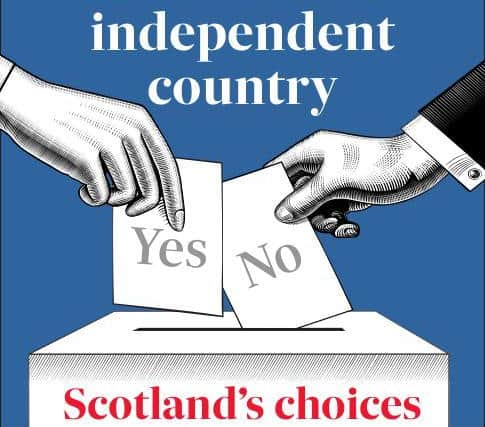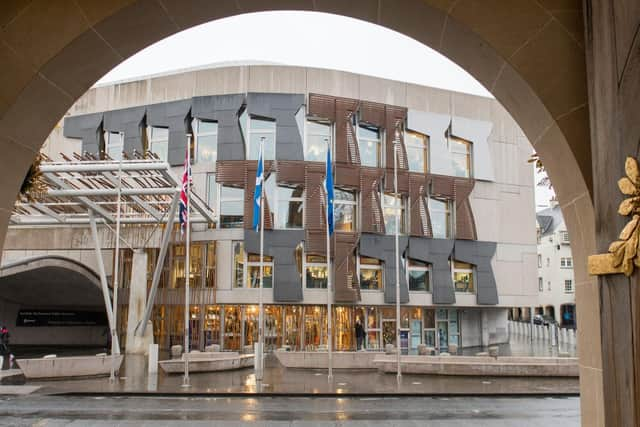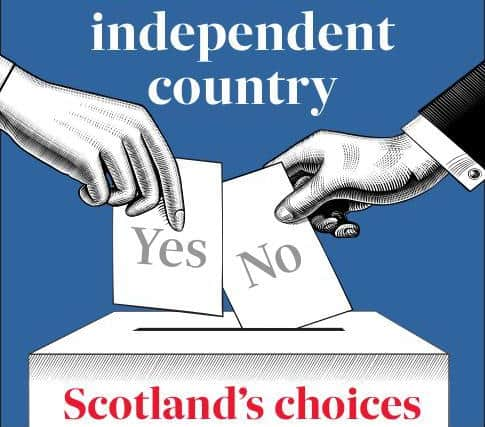Independence could see radical change in Scottish politics, including an SNP collapse
This article contains affiliate links. We may earn a small commission on items purchased through this article, but that does not affect our editorial judgement.
Allan Faulds, who runs the independent elections and polling website Ballot Box Scotland, said independence has often led to a major change in politics for countries who have experienced independence.
He said the choice of voting system in a newly independent country would also impact what sort of political system exists after independence, while speaking to The Scotsman’s new limited podcast series.
Advertisement
Hide AdAdvertisement
Hide AdHow to be an independent country: Scotland's Choices will look at how other countries have experienced independence and what lessons there might be for Scotland, with the second episode focusing on what sort of democracy Scotland could have.
The first episode examined the question of borders and whether Scotland would need passport control along the English/Scottish border.
Mr Faulds said there could be significant opportunities for new political parties to establish themselves post-independence.
Highlighting the experience of post-communist countries such as Lithuania who quickly saw formerly dominant parties during the one-party system collapse and new parties take shape, Mr Faulds said it was likely there would be change.
He said: “These are obviously very different circumstances, going from a non-democratic society to a democratic one, while Scotland would be going from democracy to democracy.


"But there are perhaps some parallels in terms of thinking well, once the thing that binds together the movement for independence goes away, there’s going to be change.”
The choice of voting system will also be key, especially if proportional representation is used after independence.
Mr Faulds highlighted the case of New Zealand which adopted proportional representation in the 1990s and saw a “substantial change” in their politics.
Advertisement
Hide AdAdvertisement
Hide AdThis saw the historically dominant parties, Labour and the National Party, lose members who set up new parties, all while giving space to smaller parties such as the Greens.


He said: “I expect if Scotland were to vote for independence we would see something similar in that sense, of really dramatic realignment.
"You can think of folk in the SNP who wouldn’t necessarily be out of place in the Conservatives were it not for independence.
"If Scotland were to vote for independence and that dividing line was removed, you might see some interesting movement in between parties.”
The expert said this could even see political foes joining forces post-independence due to their broad agreement on most policies when the the constitution is removed.


Mr Faulds said: “Similarly with SNP and Labour, I’m not the first and I won’t be the last political commentator to say there’s not a lot meaningfully that much between them, beyond the fact that governments feel constrained and oppositions have blue-sky thinking.
"You might see that some of the phoney war between people who otherwise agree on everything, that might lead to forming a new party.
"Are we going to see Anas Sarwar and Nicola Sturgeon, are they going to be in the same political party if Scotland becomes independent, because that could happen.
Advertisement
Hide AdAdvertisement
Hide Ad"Are we going to see Fergus Ewing and Douglas Ross in the same political party, that kind of stuff would be really interesting but it is also important to our democracy that it is not a structural thing, that it’s hard to predict ahead of time.”
The second episode of the brand new limited series podcast, How to be an independent country: Scotland’s Choices, is out now.
It is available wherever you get your podcasts, including Apple Podcasts and Spotify.
Comments
Want to join the conversation? Please or to comment on this article.
